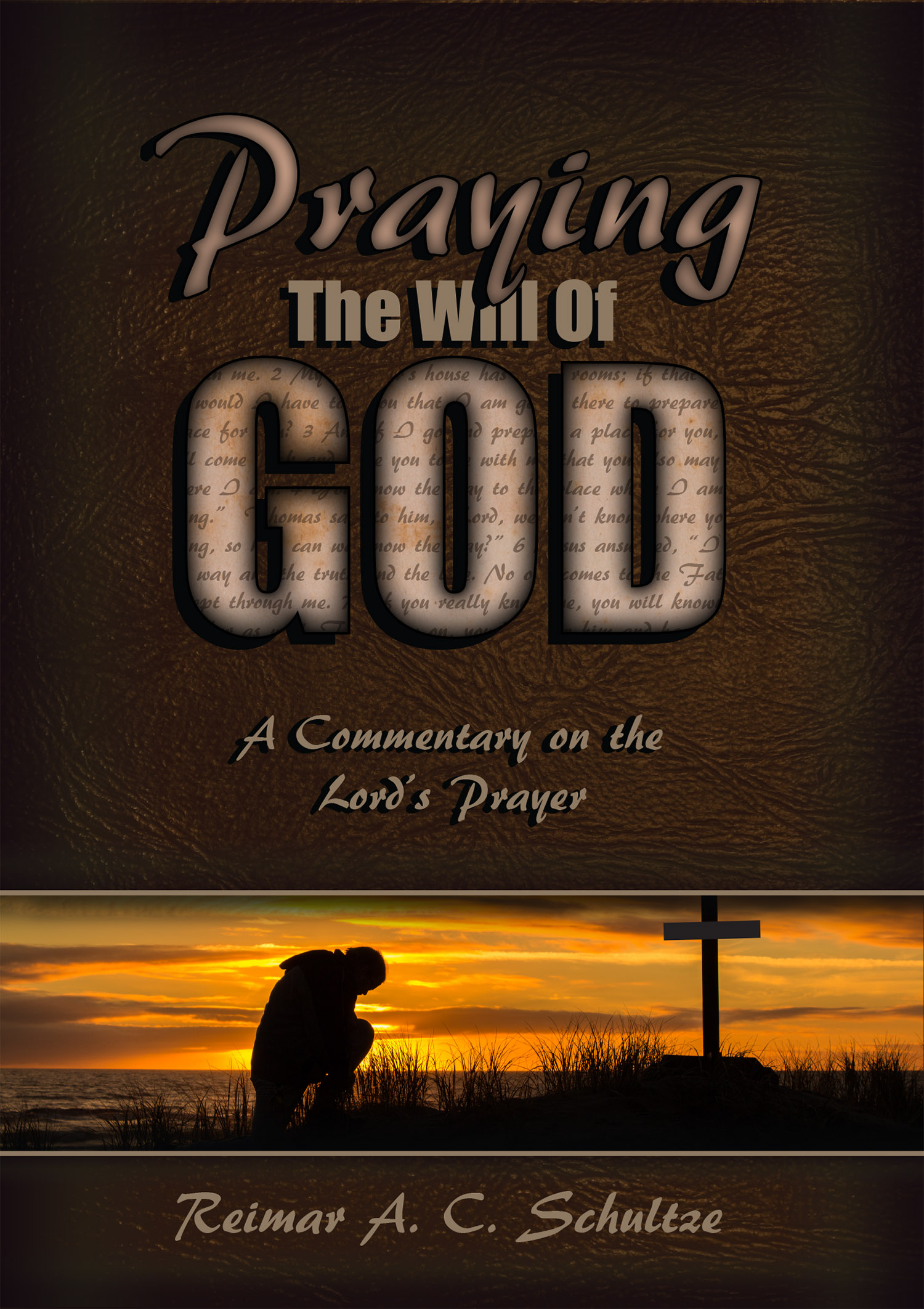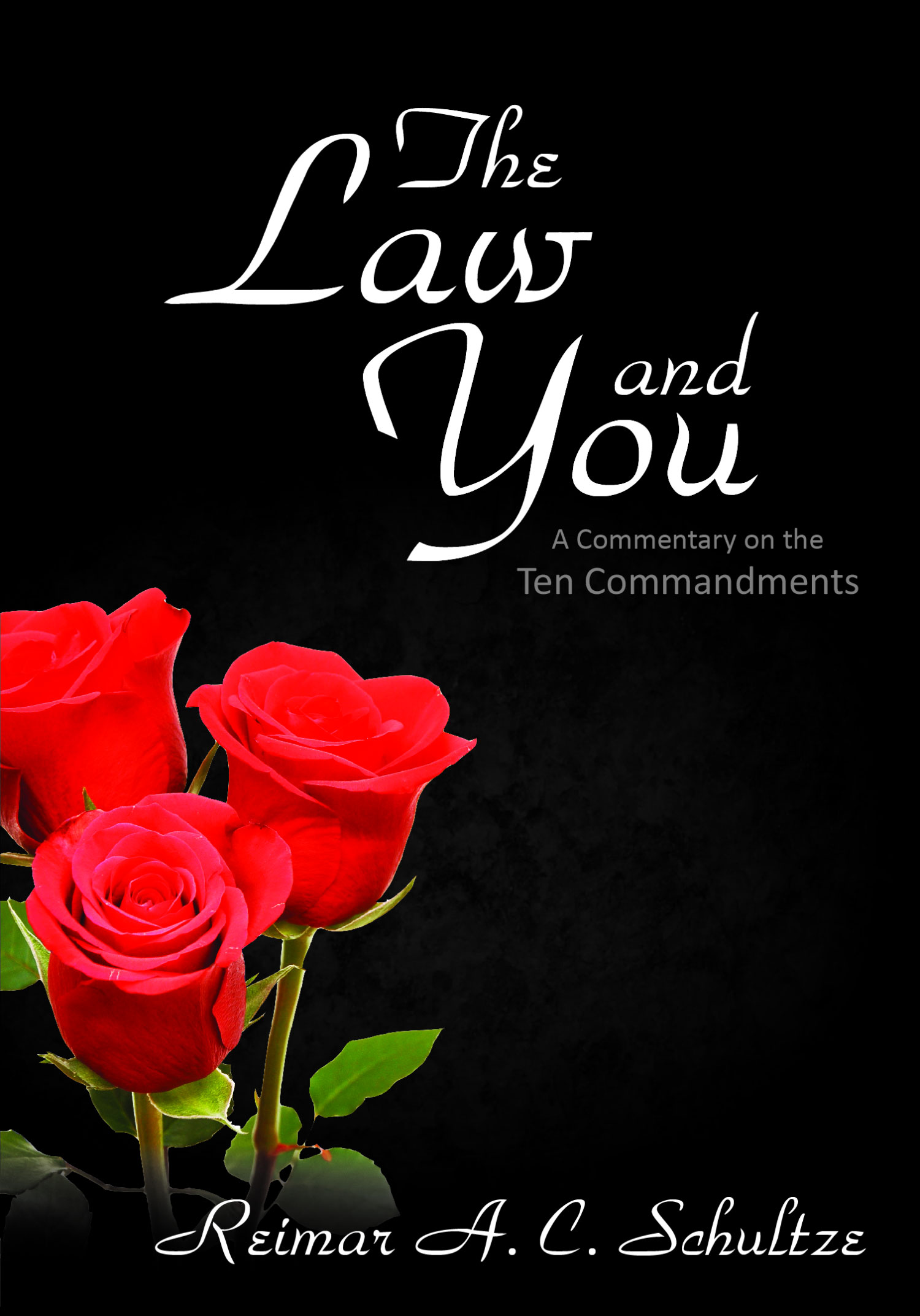
|
I AM Love AUDIO MP3 FORMAT Listen to 11 hours of Pastor Schultze's autobiography in MP3 format.
|
|
Now That You Are Born-Again: What Next? This booklet fits in your shirt pocket and will help Christians and new converts know what they are to do once they are saved. In this booklet, Pastor Schultze also shares the essential spiritual disciplines for a successful walk with God: Daily reading of the Bible, prayer, consistent witnessing , obedience.
|
|
Praying the Will of God The Lord's Prayer is an answer to His disciples' request: "Lord teach us to pray." As a result, our Lord and Savior gave us this prayer to take away all doubt as to which prayers He will answer and which He will not answer. However, this commentary is not only a call to pray rightly, but it also lays the foundation for Christian theology at its best." - Pastor Schultze.
|
|
The Ten Commandments are a gift from God to man, so that man may know how to live with his Maker and with other men. These laws are a moral compass for every soul, a code of ethics for every nation. To neglect them is to invite misery. To heed them is light and joy." - Pastor Schultze.
|
|
Join Pastor Schultze on his amazing journey from "nothing...to all things."
Purhase online at our bookstore: |
![]()
CALL TO OBEDIENCE #498
Reimar A.C. Schultze
Past Issues of the Call To Obedience
"You and the Ten Commandments"
Reimar A. C. Schultze
The key to understanding the Ten Commandments is in God’s own introduction of them. Here it is: I AM the Lord your God, who brought you out of the land of Egypt, out of the house of bondage. You shall have no other gods… (Ex. 20:2-3).
At the very beginning of the Big Ten, God introduced Himself not as a bondage maker but as a bondage breaker. In other words, He says here: “As I delivered you from the slavery of Egypt, these laws will deliver you from the slavery of sin. These laws are My love letter to you. If you keep them, you will be blessed, protected and enjoy fellowship with Me forever. Break these laws and you will perish.” After these ten laws were given here in Exodus, they were then repeated over and over throughout the Holy Scriptures. God is a moral God and that is why we have the Ten Commandments. What we see here is a moral God seeking to have fellowship with a moral people. Hence, what you need to know is that when the Apostle Paul talks about the “curse of the law” or the “bondage of the law,” he cannot possibly mean the Big Ten. Again, the Big Ten are laws of blessings and deliverance. So when Paul talks about freedom from the law, we need to reach into the Old Testament in order to understand what laws he is talking about.
In the Old Testament at Mount Sinai, God showed mankind three types of laws: moral laws, civil laws and ceremonial laws. Moral laws define man’s spiritual state, civil laws are about wholesome lifestyle practices and ceremonial laws describe religious practices. Now, there are 613 of these laws altogether. But notice that only ten of them were written on tablets of stone with fire by the finger of God and being accompanied by earthquakes and lightnings. That tells us how deeply God feels about these Ten Laws. Yet, of course, these Big Ten were not new to these covenant people, but they had been written into the hearts and consciences of Adam and Eve long ago. Again, these laws are absolutes for they, more than anything else, reflect the righteous, moral and spiritual nature of God Himself.
So, as these Big Ten were given at the dawn of humankind in Paradise, they were now given again at the dawn of the nation of Israel. These laws are a must because they are about morality. You cannot have a conscience without morality. You cannot have God without morality. You cannot have integrity or holiness without morality. You cannot have conviction of sin without morality. You cannot have man being created in the image and likeness of His maker without morality. You cannot be Christ-like without morality.
You must keep all of these Ten Commandments, because the Apostle James says, For whoever shall keep the whole law, and yet stumble in one point, he is guilty of all (James 2:10). When you violate even just one of them, it is as if you were to mar da Vinci’s beautiful painting of the Last Supper causing it to lose all of its value. That is what you do when you violate a moral law—you no longer reflect the light or the character of God. And Jesus also did not come to free us from these moral laws, but rather, that through the help of them, we might be bonded to Him. Hence, when we abandon these laws, such as having other gods, committing adultery, coveting, etc., we lose our integrity and have ceased to walk in step with our Lord. The point is that the Christian cannot be a Christian without embracing the Big Ten.
So, we have the writings on law in the Old Testament, in the Gospels and in Paul’s epistles. Let us now examine John’s writings on law, which were given 40 years after Paul and 20 years after the destruction of Jerusalem. In John’s writings, we have God’s final word on Law taking Christianity to its full bloom, stature and maturity. Please read John’s words carefully.
- Now by this we know that we know Him, if we keep His commandments (1 John 2:3).
- He who says, I know Him, and does not keep His commandments, is a liar, and the truth is not in him (1 John 2:4).
- And whatever we ask we receive from Him, because we keep His commandments and do those things that are pleasing in His sight (1 John 3:22).
- Now he who keeps His commandments abides in Him, and He in him. And by this we know that He abides in us, by the Spirit whom He has given us (1 John 3:24).
- By this we know that we love the children of God, when we love God and keep His commandments (1 John 5:2).
- For this is the love of God, that we keep His commandments. And His commandments are not burdensome (1 John 5:3).
- This is love, that we walk according to His commandments. This is the commandment, that as you have heard from the beginning, you should walk in it (2 John 1:6).
What we have here is a sevenfold repetition of His commandments! So then what does John mean by His commandments? When John talks about His commandments, he means everything that Jesus tells us. Yes, “everything” means everything. To the Jews, only the first five books of Moses were Torah, which means most sacred. But here John declares that everything that Jesus speaks is sacred and takes on the nature of Torah. In fact, we learn that John introduces Jesus as Torah in the very first words of his gospel saying: In the beginning was the Word, and the Word was with God, and the Word was God (John 1:1). That makes Jesus Torah. Then John says this: In Him was life, and the life was the light of men (John 1:4). Torah is life—His life for us and in us. Yes, what John conveys to us, to the church universal, is that when Jesus told the disciples to get a donkey that had never been ridden, that was as much Torah as do not commit adultery. You either accept Christ’s Lordship over all things in your life and you are in, or you do not accept His Lordship and you are out. Do what He tells you to do. That is the only way by which you keep His anointing.
Now let us carry this over into Jesus’ evangelism. Look at what He told the rich young ruler who sought eternal life: ...But if you want to enter into life, keep the commandments (Matt. 19:17). Jesus refers to the Big Ten here. But yet, He told Nicodemus: ...You must be born again (John 3:7). Now what is it for us to get eternal life? Is it that we must keep the Ten Commandments or is it that we must be born again to have eternal life? The answer is simple—it is both. Jesus always meets you at your point of need. If you obey whatever He tells you, it always clears the way for the next step in your life. So then, Jesus’ words to the young ruler became as much Torah (life) as Jesus’ words to Nicodemus. All the words of Jesus are life, meaning that they are life giving and life sustaining. Indeed, that is why the first truth that Jesus told the devil even before the beginning of His ministry was: Man shall not live by bread alone, but by every word that proceeds from the mouth of God (Matt. 4:4). Are you getting this? I know that the devil got it. Again, every step that Jesus commands you to take is to maintain life with Him and in Him. It is Torah. For one, it may be: sell all you have; for another, it may be: you must be born again; and yet for another, it may be: get the donkey.
Through John’s writings, God put a capstone on the entire canon of the Word of God. It is now and only now through John that all the pieces of the Bible come together in these simple and profound words: Now he who keeps His commandments abides in Him, and He in him. And by this we know that He abides in us, by the Spirit whom He has given us.
Oh, what wonderful words these are, and what clarity they bring to Christianity and to our daily walk with our Savior. Again, the Big Ten were first written into the hearts of our first parents; they were then reiterated and expanded upon at Mount Sinai; they were underlined and enriched by Jesus through His Sermon on the Mount; and finally, they were encapsulated as stated above by His most beloved apostle. So do not ever say that we, as Christians, do not need these Big Ten. If you reject these laws, you excommunicate yourself from the fellowship of the chosen. In fact, no one is a candidate for the rebirth unless he submits to morality. No one can walk with God without morality. No one can go to heaven without morality: Pursue peace with all people, and holiness, without which no one will see the Lord (Heb. 12:14). If you take the moral laws out of Christianity, you have a Christianity without integrity, without credentials and without holiness.
Is it any wonder then that the first word that placed Christianity on the stage of human existence on the day of Pentecost was: REPENT (Acts 2:38)? Repent from your immorality! Repent from your inhumanity. That is also why Jesus preached repentance everywhere (Matt. 4:17).
Oh, my friend, the devil desires that we make light of the Ten Commandments. The devil desires for us to have a Christianity without morality, so that we will adopt a theology of “cheap grace,” as Dietrich Bonhoeffer called it. Paul also forewarned us of this when he raised the question: ...shall we continue in sin that grace may abound? Certainly not!... (Rom. 6:1-2).
Jesus fulfilled the law: the moral law. He did so by the Holy Spirit and the same Holy Spirit that was in Him is there for you: to indwell you, to perfect you, to give you morality and to even lead you by the Holy Spirit to find the right donkey.
Now he who keeps His commandments abides in Him, and He in him. And by this we know that He abides in us, by the Spirit whom He has given us.
For more newsletters visit my website: www.joyfulabiding.com
HOME • ARCHIVES • CONTACT • WORLD WIDE RADIO • CALL TO OBEDIENCE
• CHILD DISCIPLINE • REIMAR SCHULTZE'S TESTIMONY • WALKING WITH GOD





